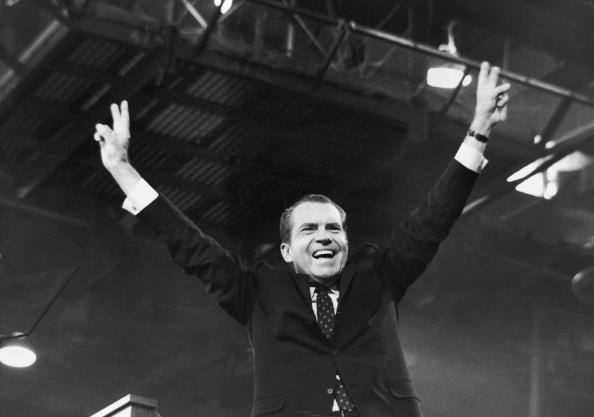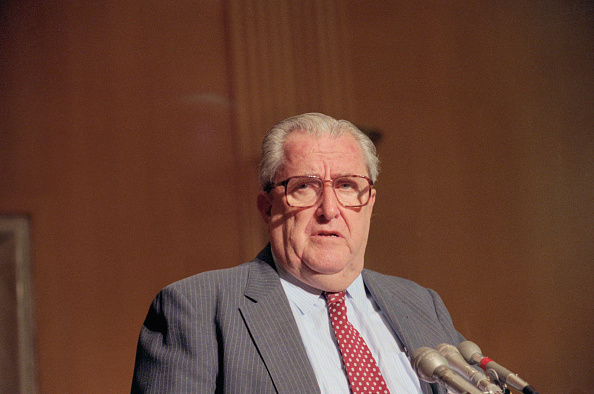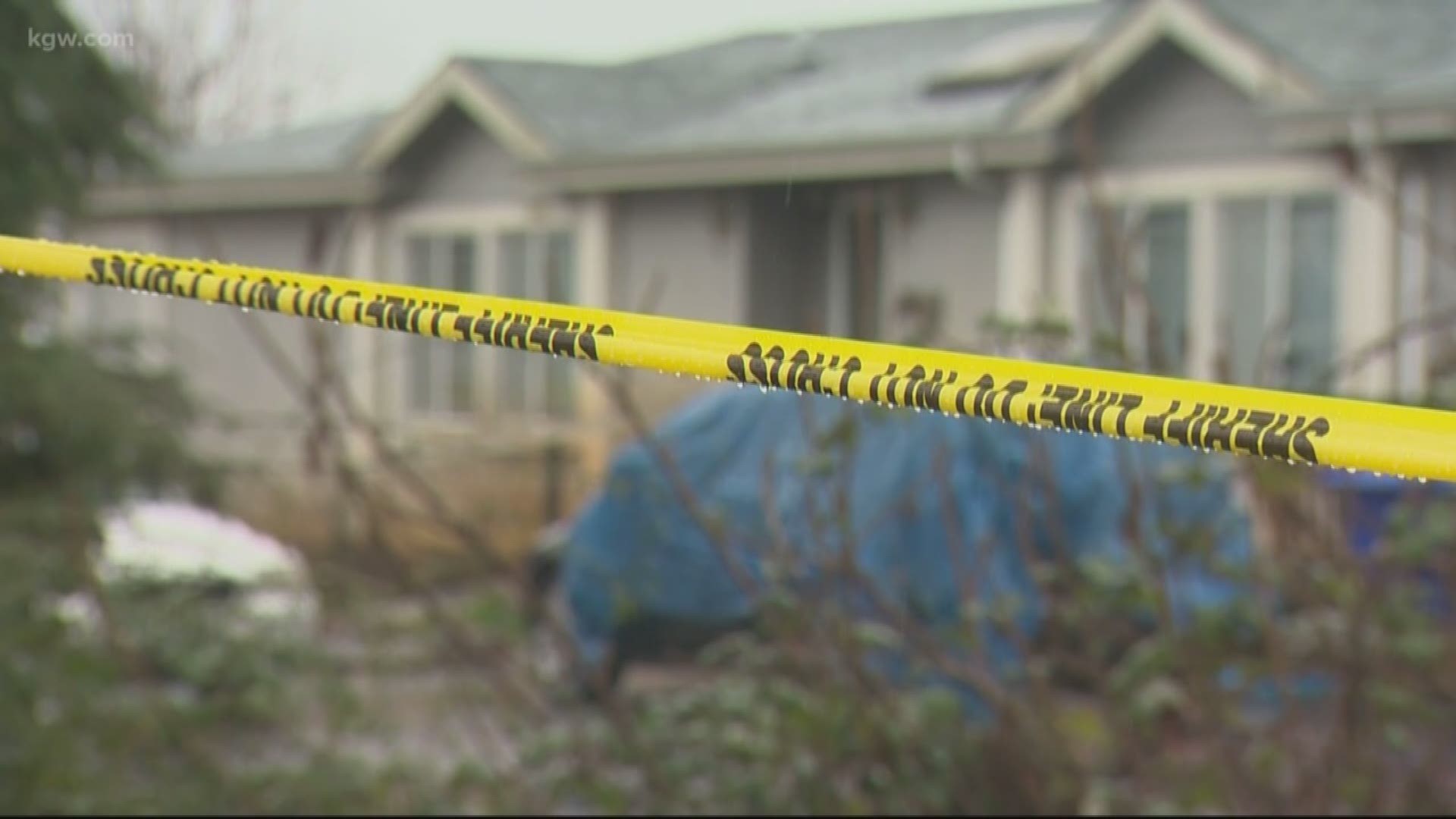The political avalanche that consumed President Richard Nixon and forced him to resign in August 1974 gained steam more than a year after it was revealed that one of Nixon's most loyal aides had recorded White House attempts to stop the FBI investigation into the Watergate break-in in a series of memoranda.

Now President Trump faces a similar crisis, this time involving an FBI investigation into the activities of Trump's former national security adviser, retired Army lieutenant general Michael Flynn.
On Tuesday, the New York Times reported that former FBI director James Comey wrote a memo about a February attempt by Trump to get the FBI to stop its investigation of Flynn. Once again, the comparisons between Trump, Nixon and the Watergate scandal have flourished.
Early in the morning on June 17, 1972, five burglars connected to Nixon's re-election committee were caught trying to burglarize the Democratic National Committee headquarters in Washington's Watergate office complex. White House officials, primarily chief of staff H.R. Haldeman, domestic policy aide John Ehrlichman and counsel John Dean, wanted to limit the exposure of the White House to the burglary.
By the morning of June 23, Dean had suggested to Haldeman that the White House could reach out to the FBI and ask them to back away from their investigation, because of the ties of the Watergate burglars to the CIA.
"The way to handle this now is for us to have [deputy CIA director Vernon] Walters call [acting FBI chief] Pat Gray and just say, 'Stay the hell out of this...this is ah, business here we don't want you to go any further on it,'" Haldeman said.

Nixon agreed. He told Haldeman and Ehrlichman to meet with Walters, a longtime Nixon loyalist whom the president had placed in the CIA to monitor its director, Richard Helms, and give him the order to talk to Gray.
"When you get in these people when you...get these people in, say: 'Look, the problem is that this will open the whole, the whole Bay of Pigs thing, and the President just feels that' ah, without going into the details... don't, don't lie to them to the extent to say there is no involvement, but just say this is sort of a comedy of errors, bizarre, without getting into it, 'the President believes that it is going to open the whole Bay of Pigs thing up again. And, ah because these people are plugging for, for keeps and that they should call the FBI in and say that we wish for the country, don't go any further into this case', period!" Nixon told Haldeman.
The Bay of Pigs was a failed invasion of Cuba by soldiers who fled the island after the takeover by Fidel Castro. The April 1961 attack was closely run by the CIA. Four of the Watergate burglars were Cuban exiles.
'Creating a lot of noise'
Haldeman called Walters and Helms to the White House, where he said "that the bugging of the Watergate was creating a lot of noise, that the opposition was attempting to maximize this, that the FBI was investigating this and the leads might lead to some important people, and he asked Mr. Helms what the Agency connection was," Walters told a Senate committee in September 1973. "Mr. Helms replied quite emphatically that there was no agency connection and Mr. Haldeman said that nevertheless, the pursuit of the FBI investigation in Mexico might uncover some CIA activities or assets."
Walters went back to the CIA headquarters and recorded the details of this conversation in a memo. He did the same after a series of conversations with Dean later that month in which the White House counsel asked Walters if the CIA could pay for the bail or the salaries of the Watergate burglars. Walters refused.
The memos remained sealed in a CIA vault until May 1973, when the agency's director, James Schlesinger, asked all agency employees to tell him of any cases in which the CIA may have violated its charter or been asked to do inappropriate things. Walters delivered the memos to Alexander Haig, then Nixon's chief of staff, who told Nixon that allowing Walters to testify before an upcoming hearing of the Senate Armed Services Committee would help damage Dean's reputation. Nixon agreed.
Walters told the Armed Services Committee on May 14 in a secret session about the White House cover-up attempt. The panel's acting chairman, Democratic Sen. Stuart Symington of Missouri, leaked Walters' comments almost immediately and followed up the next day with a news conference in which he spelled out Walters' claims in greater detail. The actual memos were delivered to Congress days later and inspired claims that Nixon had obstructed justice.
The claims of White House involvement in the Watergate cover-up remained there until July 1974, when, after a year-long battle for access to the tapes Nixon recorded of his conversations resulted in the release of the June 23, 1972, "smoking gun" tape of the conversation between Haldeman and Nixon in which the president signed off on having the CIA block the investigation.
The House Judiciary Committee was then considering articles of impeachment against Nixon. In the first article, it said that Nixon, "using the powers of his high office, engaged personally and through his close subordinates and agents, in a course of conduct or plan designed to delay, impede, and obstruct the investigation of such illegal entry; to cover up, conceal and protect those responsible; and to conceal the existence and scope of other unlawful covert activities."

One reason for impeachment, the House said, was "endeavoring to misuse the Central Intelligence Agency, an agency of the United States."
The release of the "smoking gun" tape made that passage of the article of impeachment irrefutable. Almost immediately, 10 reluctant Republican members of the Judiciary Committee said they would vote for impeachment. Nixon's presidency was over. He said on Aug. 8,1974, that he would resign the following day. Shortly after noon on Aug. 9, 1974, he addressed his staff, stepped into his Marine helicopter and levitated from the South Lawn of the White House and to exile in California.
Walters' memos of Nixon's apparent obstruction of justice helped lead the way.
Ray Locker is the Washington enterprise editor of USA TODAY and author of Nixon's Gamble: How a President's Own Secret Government Destroyed His Administration.

